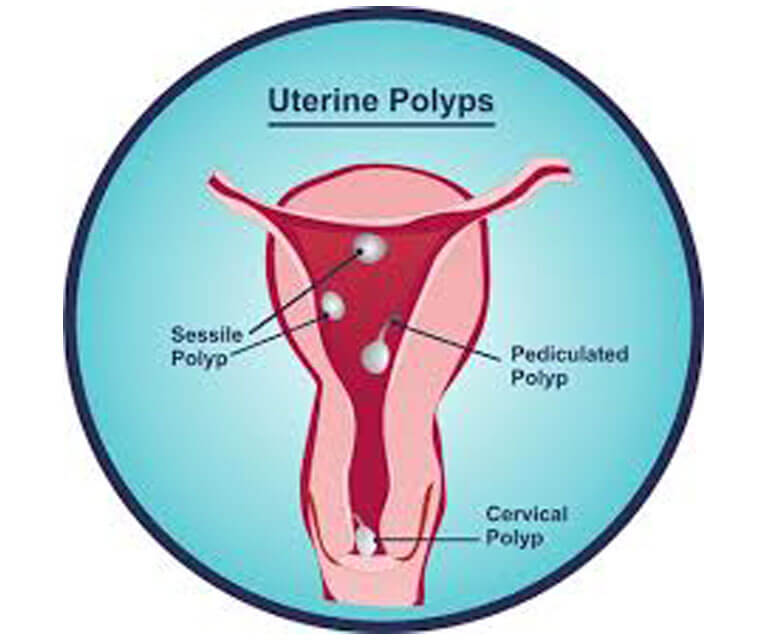Uterine polyps are the lesions and masses of the uterine wall (endometrium) whereas Cervical polyps are small, elongated growths of tissue that protrude into the passageway through the cervix. In the general population, the prevalence of uterine or endometrial polyp is 10% and about 2 to 5% of women are affected with cervical polyps.
Usually, polyps are almost benign (noncancerous) and polyps on the cervix do not cause any symptoms. Women in their 40s and 50s, who have more than one child are most commonly affected with polyps. The main reasons for the occurrence of polyps are due to an increase in estrogen hormone, chronic inflammation of the cervix, vagina, or uterus, and clogged blood vessels.
Most cervical polyps do not cause any noticeable symptoms. However, some polyps may bleed between menstrual periods or after intercourse, and become infected, causing a pus-like vaginal discharge.
Dr. Nirmal Bhasin, Director of Jannee fertility center, says “You should immediately consult a gynecologist once you experience a white or yellow mucus discharge from Vagina, or abnormally heavy periods.”
Also, vaginal bleeding or spotting may occur:
• After sexual intercourse
• Between periods
• After menopause
• After douching
In rare cases, some of these symptoms may represent early signs of cancer. Therefore, removing them with surgery can help to reduce this risk.
How Endometrial Polyps affect Fertility?
Uterine polyps occur in the endometrium, the tissue that lines the uterine walls, which can affect fertility by lowering the chances of implantation of a fertilized egg. Polyps may even enhance the risk of miscarriage in women undergoing In-vitro fertilization.
At Jannee, one of the best IVF centers in Chandigarh, if our doctors suspect uterine polyps, they might perform one of the following diagnostic procedures:
Transvaginal ultrasound-
It is performed to see a polyp or identify a uterine polyp as a region of thickened endometrial tissue. Other related procedures are known as Hysterosonography or Sonohysterography.
Hysteroscopy-
In this procedure, a flexible, thin, and lighted telescope (hysteroscope) is passed through the vagina and cervix into the uterus to examine the endometrial cavity.
Endometrial biopsy–
Here, a suction catheter is put inside the uterus to collect a tissue specimen for lab testing. It is generally performed to confirm Uterine polyps, but sometimes this biopsy examination might also miss the polyp.
Although most uterine polyps are benign in nature, some precancerous changes of the uterus or uterine cancers may appear as uterine polyps. Therefore, a doctor will likely recommend examination of a tissue sample for lab analysis to confirm uterine cancer. Usually, small polyps might resolve on their own, so no treatment is advised unless a patient is at risk of uterine cancer. Some hormonal medications may be prescribed as a short-term solution to minimize symptoms of the polyp, because, symptoms typically may recur once the medication is stopped. Hysteroscopy may be performed for the surgical removal of polyps from the uterine cavity. The removed polyp should be sent to a lab examination to confirm cancerous cells.
Always remember, uterine polyps might be associated with infertility. After effective treatment of polyps, all doors of Assisted Reproductive Technology open for the patient. Depending on the Reproductive history of the couple they may undergo IUI, IVF, ICSI or Surrogacy to start a family.
If you are also experiencing any of related symptoms of uterine polyps and unable to have children, then you may visit Jannee fertility center. Here, the surgical removal of the polyps is performed by our team of doctors led by Dr. Nirmal Bhasin who has several years of experience in the field of infertility.
Book your appointment today for an expert consultation.


© 2022 Jannee Fertility Centre. All Rights Reserved.
Designed by AMS Informatics